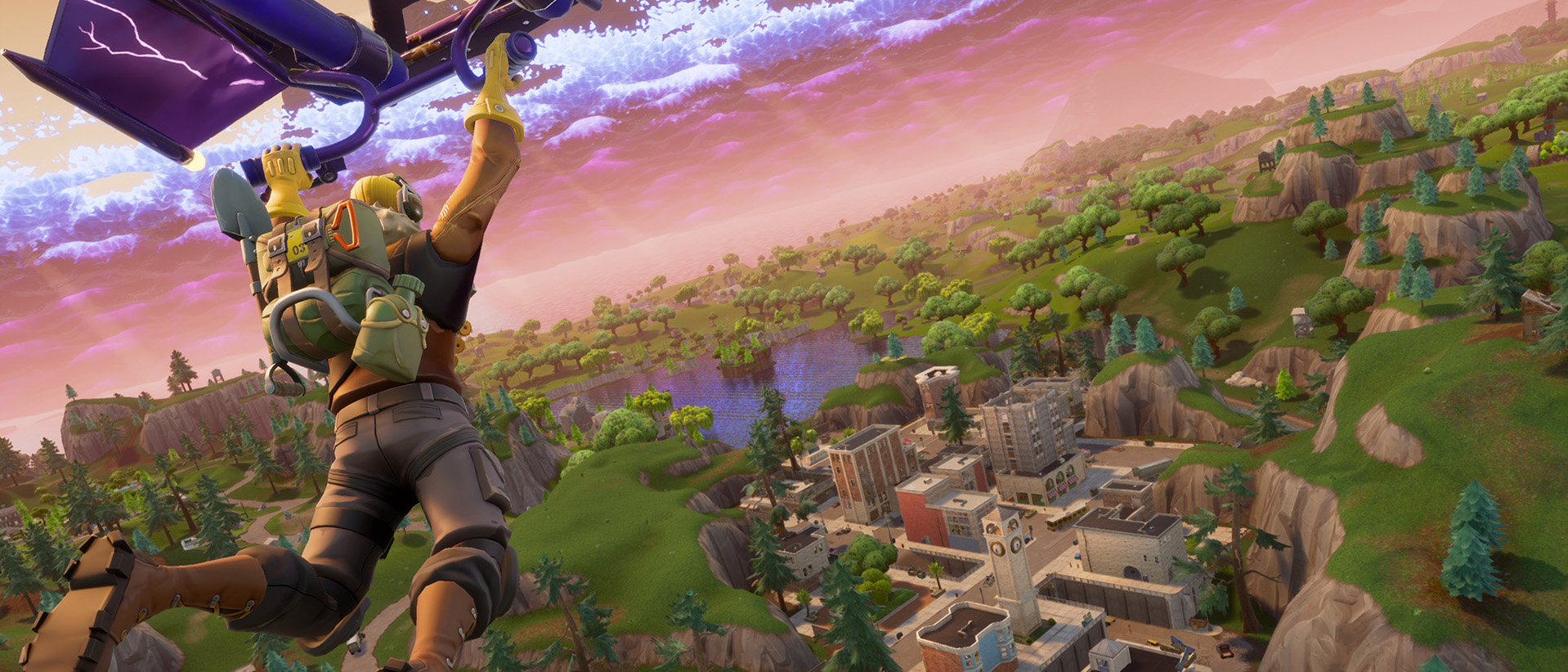TechRadar Verdict
A global phenomenon built on a keen understanding of what makes games such great escapism, seemingly with no limit to Epic’s imagination.
Pros
- +
Vibrant world
- +
Fun combat
- +
Unique building mechanic
- +
Excellent monetization
Cons
- -
Still only one map
- -
Constantly shifting world can make it hard to keep up
Why you can trust TechRadar
Time played: 30 hours (original review)
Platform: PS4, Xbox One and Nintendo Switch
It feels strange that Fortnite was once a long-gestating game focused on defending makeshift bases from zombies. The release of its standalone, free-to-play Battle Royale mode felt like a curio at best back in 2017, an attempt to hop onto a trend. Now, in 2019, the mode has outpaced many of its competitors, leading to footballers performing dances from the game at the World Cup final and the elderly sporting game merchandise.
Stripping back the mode's meteoric success, and in an increasingly crowded space, is Fortnite still worth parachuting into?
For newcomers, it’s worth a quick mention of the basic setup of a Battle Royale title - one hundred players jump onto a map, scavenging weapons and items with which to eliminate others and work to be the last player standing. Fortnite doesn't stray too far from this formula, offering solo, duo, and squad based modes, but its execution of these basics is what’s impressive...
We'll be continuing to update this review intermittently to assess how Fortnite's patches affect the game.
Fortnite Battle Royale: Chapter 2 update
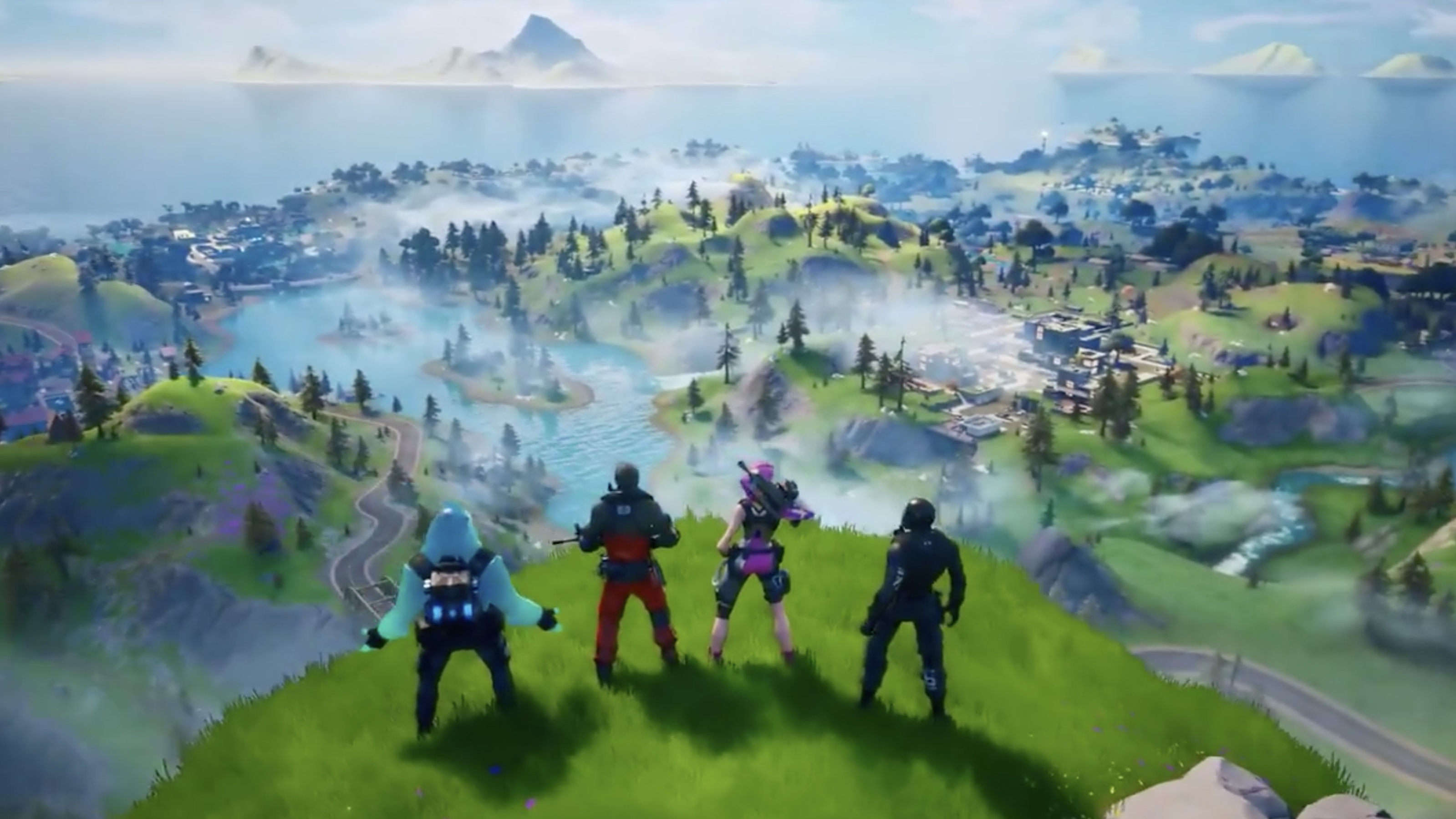
Fortnite has been with us for two years and, due to its status as a ‘game as a service’, we think it’s important to update our thoughts on it.
In case you hadn't noticed, a lot has changed with the start of Fortnite's 11th season. For one, it's not called Season 11 - instead it carries the moniker ‘Fortnite Chapter 2’, and in many ways it does feel almost like a sequel.
At the end of Season 10, Fortnite's map was destroyed by a huge explosion, and swallowed by a black hole, watched by millions of players around the world. Those same millions waited days for any signs of life from Epic or the game's social accounts, and yet this period of inactivity only served to increase the hype levels - pretty impressive for a game that's already the world's most popular. It turns out that the one thing more talked about in gaming than playing Fortnite is the game being unavailable. How many games can dominate the conversation two years from launch?
Fortnite's new map will be what pulls in many lapsed players, but for our money it remains a variation on a theme. It retains the Dreamworks Animation aesthetic that has become so vaunted (and that helps it run on seemingly every platform), but the real draw here is the water.
Previously as deep as a puddle, water has been completely redesigned in Fortnite Chapter 2. For one, you no longer simply waltz through it as if it wasn't there. Players can swim through the water (preventing use of weaponry but potentially allowing for a sneaky getaway), while you can also use boats to traverse it. These feel much more natural to play with or against than the previously added planes and mechs, and could bring back many players that were disappointed with those additions.
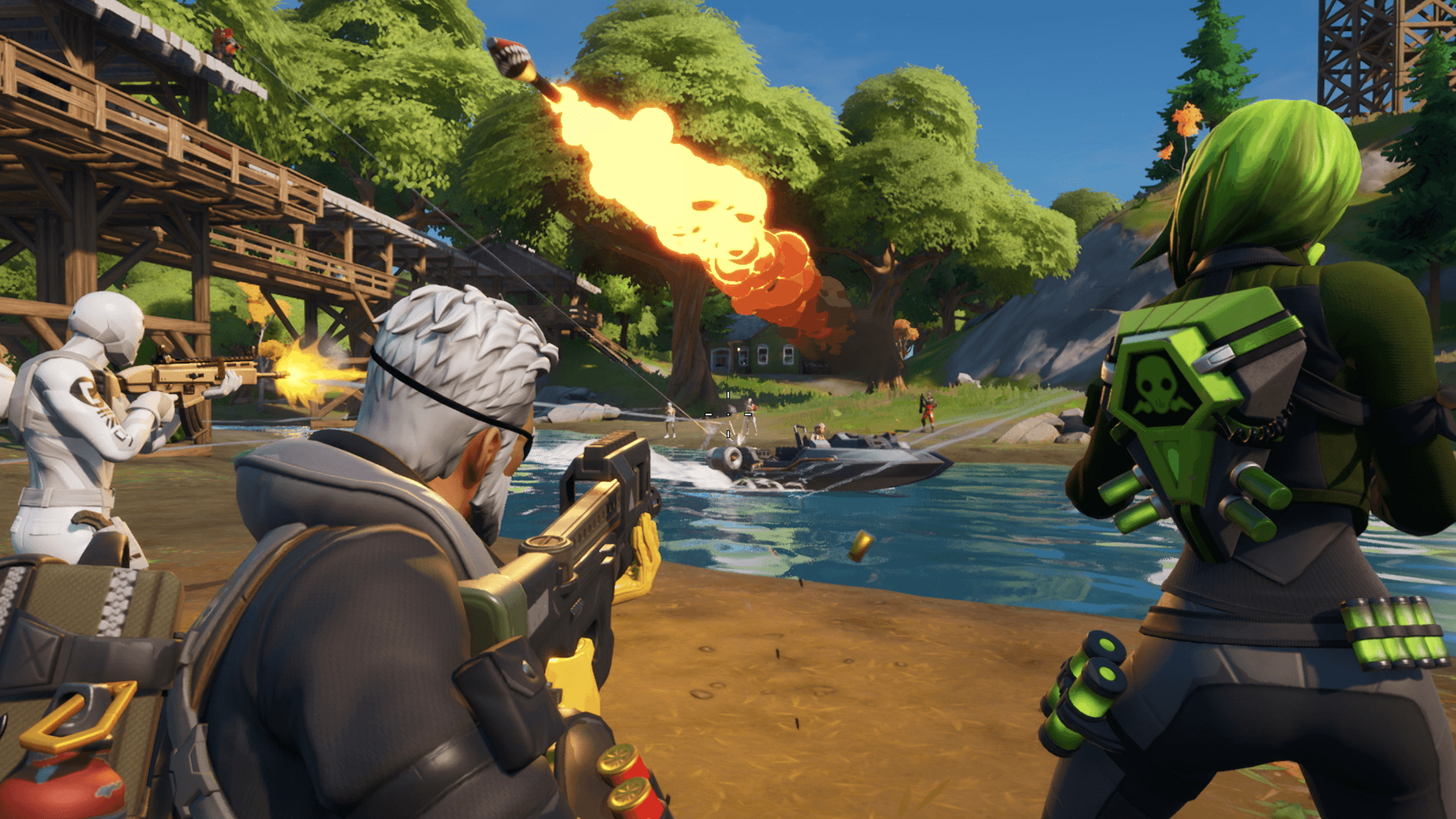
There's even fishing, now, and while we have some serious concerns for the ecological state of the new map (being able to pull a shotgun or assault rifle from the bottom of a lake raises all sorts of questions about recycling), it can be a nice bonus when all you really wanted was a fish to eat for health.
There's more to enjoy in the map than just the water, and on land players are now able to hop into dumpsters and haystacks to surprise passing opponents. Perhaps even more excitingly, you can now use environmental hazards like exploding gas stations to deal serious damage to enemies.
Fortnite has always been at it's best when it revels in its own slapstick sensibilities, and Chapter 2 leans heavily into that. Aside from the aforementioned hiding spots, a ‘bandage bazooka’ allows for long range healing, while being able to carry comrades out of the line of fire is a neat new addition - help them up, and maybe they'll join you for a group high five (yes, there are group emotes now).
Our favorite change for Fortnite Chapter 2, though, are the tweaks to the game's Battle Pass system. Whereas before you could go a whole match without completing one of the season's arbitrary challenges and therefore feel under-rewarded for your time, the game now offers seasonal XP and medals to help level you up just by playing the game. The challenges are still there, but those looking to just play a match without having to "loot 10 chests" or something like that will find the time they invest respected more.
To summarize, Fortnite Chapter 2 breathes fresh life into a game that's built on reinvention. It's gone from gaming phenomenon to mainstream phenomenon, and it feels like witnessing a part of history - just with more XP now.
Fortnite Battle Royale: one year on
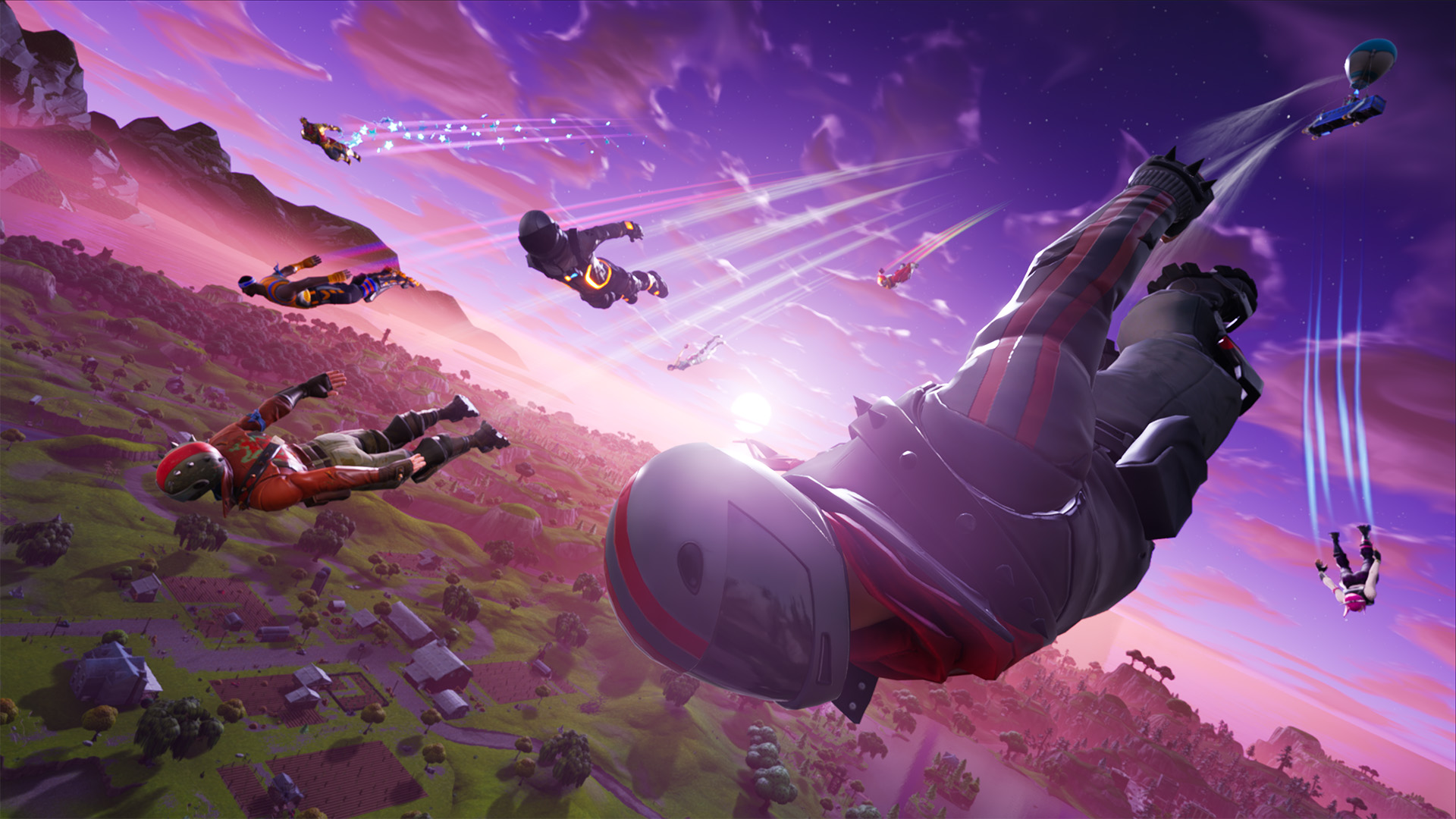
As with any ever-evolving ‘live service’ game, Fortnite is constantly shifting. What started as another battle royale (albeit with building mechanics) has become a global phenomenon which is currently in the midst of its ninth season. With that in mind, we're re-evaluating Fortnite to give a more up to date perspective on the free-to-play juggernaut.
Fortnite, as we mentioned in our original review, is not only an excellent product, but one that rewards players regardless of financial investment. Someone hopping in for a handful of matches with friends will find just as much fun as someone who is grinding their way through the oft-imitated Battle Pass. All of this continues to ring true with Season 9, which offers the Gundam-esque Sentinel skin and the similarly upgradeable Rox outfit to start - and only gets more generous from there.
Earn everything on offer, and you'll have amassed enough V-Bucks to buy your next battle pass - plus countless skins, decals, emotes and more.
A big part of this new battle pass are Fortbytes, a new collectible that takes a little more work. Each one is numbered, and some are earned through completing battle pass challenges or earning a required amount of XP, while many can be found on the map if the player is wearing the required Battle Pass outfit. This helps Fortnite foster a rabid community that regularly works in tandem to solve mysteries - not bad for a player-versus-player title.
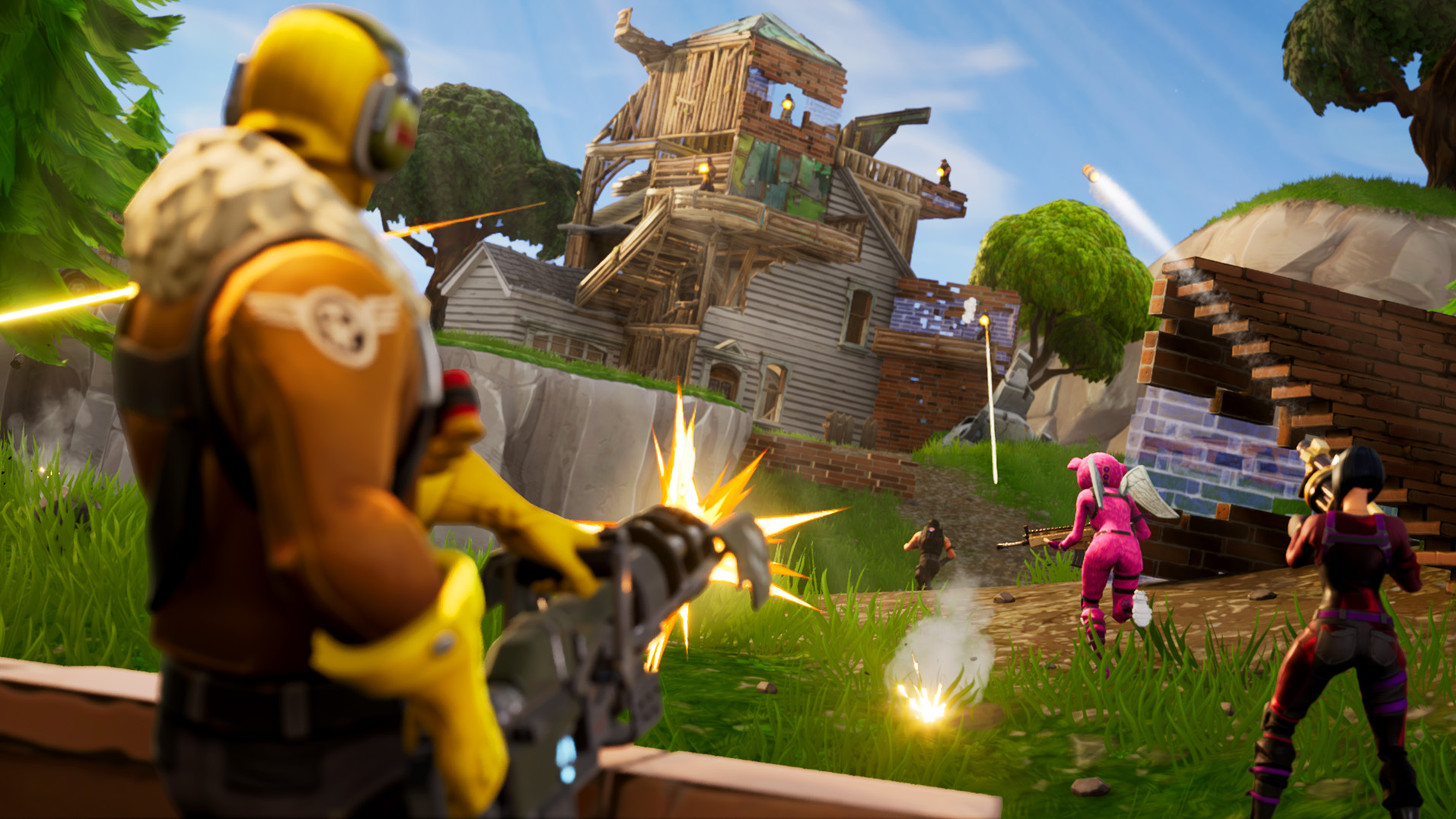
Of course, a big part of such battle royale titles is the map itself and, as is tradition, Season 9 brings a wealth of changes to the bright and colorful game world. Tilted Towers has become Neo Tilted, a futuristic cityscape with a new digital clocktower and blimps flying overhead. Loot Lake's neighboring buildings are more modern now, too, while large windmills can be found dotted around Pleasant Park. Perhaps the biggest change is that of Retail Row, which was destroyed by Season 8's Volcano but now comprises a multi-level shopping mall which is perfect for ambushes and harvesting materials.
This is on top of new weapons which are constantly shifting and being rebalanced, as well as wind tunnels to allow for speedy traversal and new Limited Time Modes which rotate regularly mean that there's always some reason to return.
All in all, there's more than enough content to tempt back those yearning to complete some new Battle Pass challenges, but changes to Fortnite's map and meta make it a great place to compete alongside friends, especially since it continues to blaze a trail for cross-play and cross-progression. Being able to grind Battle Pass challenges on Switch or Mobile before returning to your console or PC to collect rewards still feels incredibly forward-thinking, even as other titles attempt to offer comparable services.
Sunshine, lollipops and rainbows
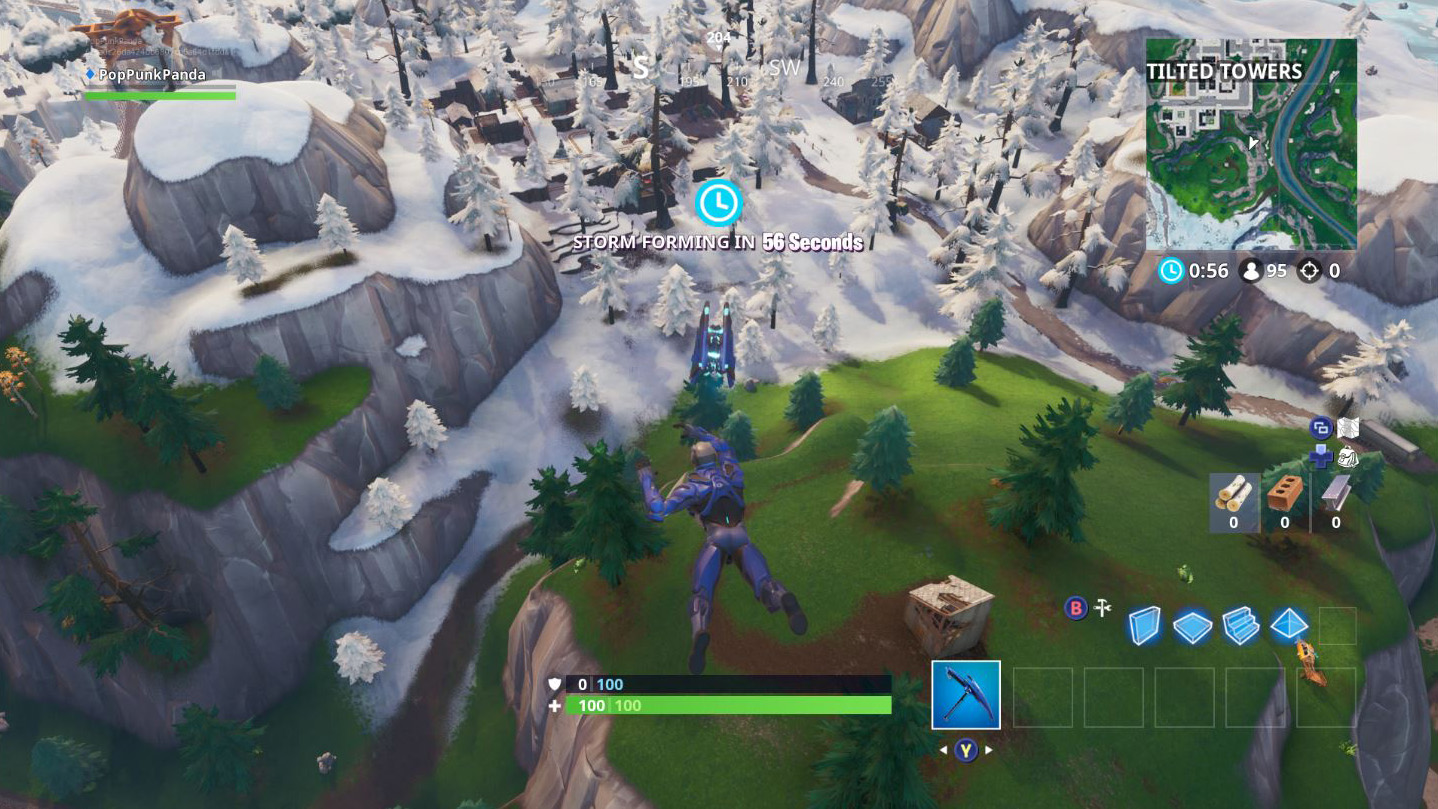
[Below is our original review of Fortnite at launch.]
In comparison to its more po-faced contemporaries such as Blackout or PlayerUnknown's Battlegrounds, Fortnite's identity is all its own. Both the characters and the map are colourful, with a vibrancy that belies its tactical depth. Whether you're playing on a PC, a Nintendo Switch, or your mobile device, the game not only looks great but plays well too - perhaps entirely fitting given that Epic are the creators of the Unreal Engine (a suite of tools for game developers).
The lack of blood and gore makes it more child-friendly than other shooters, and the whole thing is wrapped in a Dreamworks-esque shell. Whether it's jumping out of the Party Bus to start a match, or picking up items like a launchpad to send you flying through the air, Fortnite feels reminiscent of a Saturday morning cartoon.
This personality filters down to the map itself - a hodgepodge of landscapes, from the urban skyscrapers of Tilted Towers, to the oasis-like Paradise Palms. Treasure chests are dotted around, each containing something useful, and Fortnite's reliance on a broader color palette than shades of greens and browns can make it easier to distinguish an opponent from a distance.
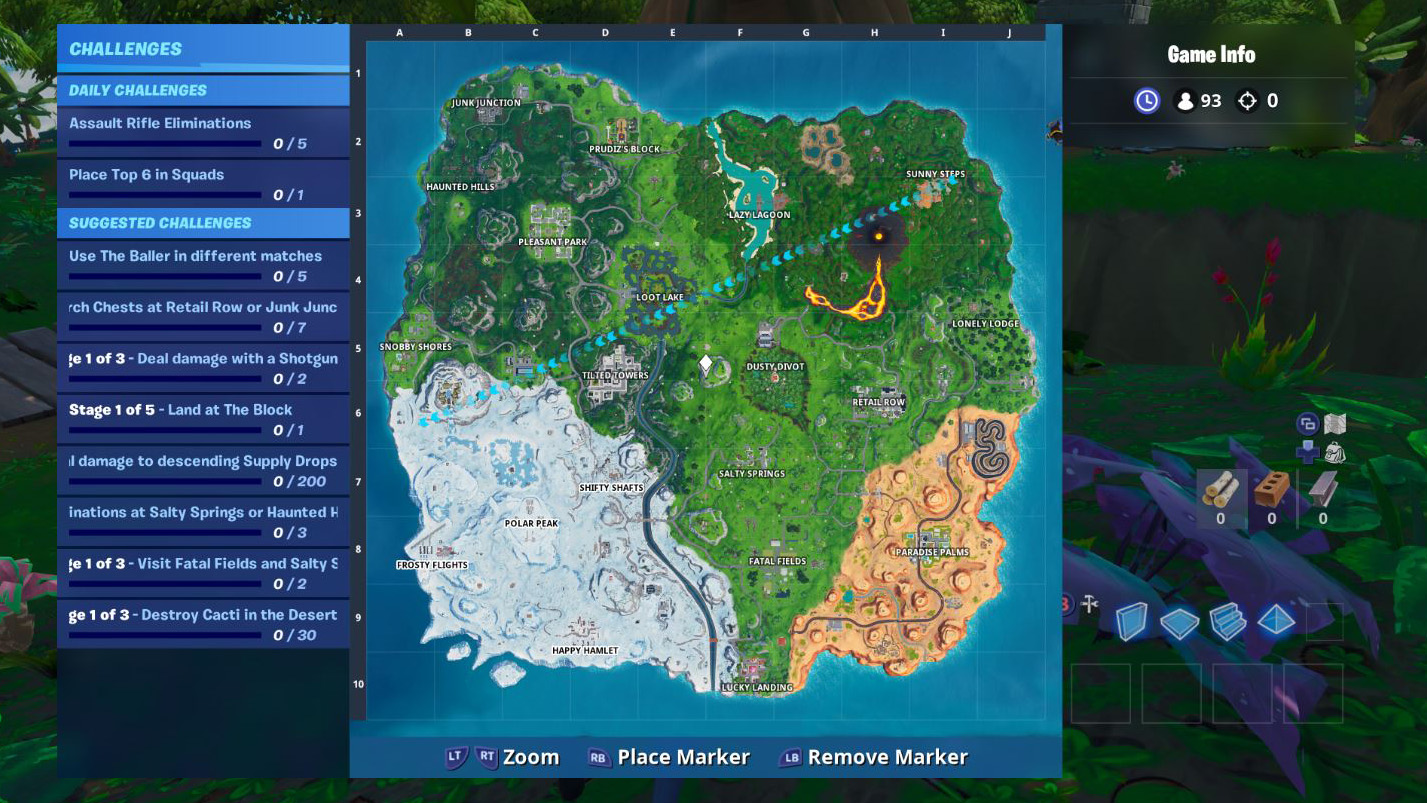
While Fortnite still keeps its battles confined to a single map, variety comes in the form of seasonal updates and transformations which apply to all players. While one season brought about an ice age, another has added flyable aircraft.
These changes mean that the meta is in a state of constant flux, which may rile competitive players, but it keeps millions checking in on a regular basis to see what has changed. In fact, it wasn't long ago that the shooting stopped so that players could watch an in-game concert from current superstar DJ Marshmello.
Last person standing
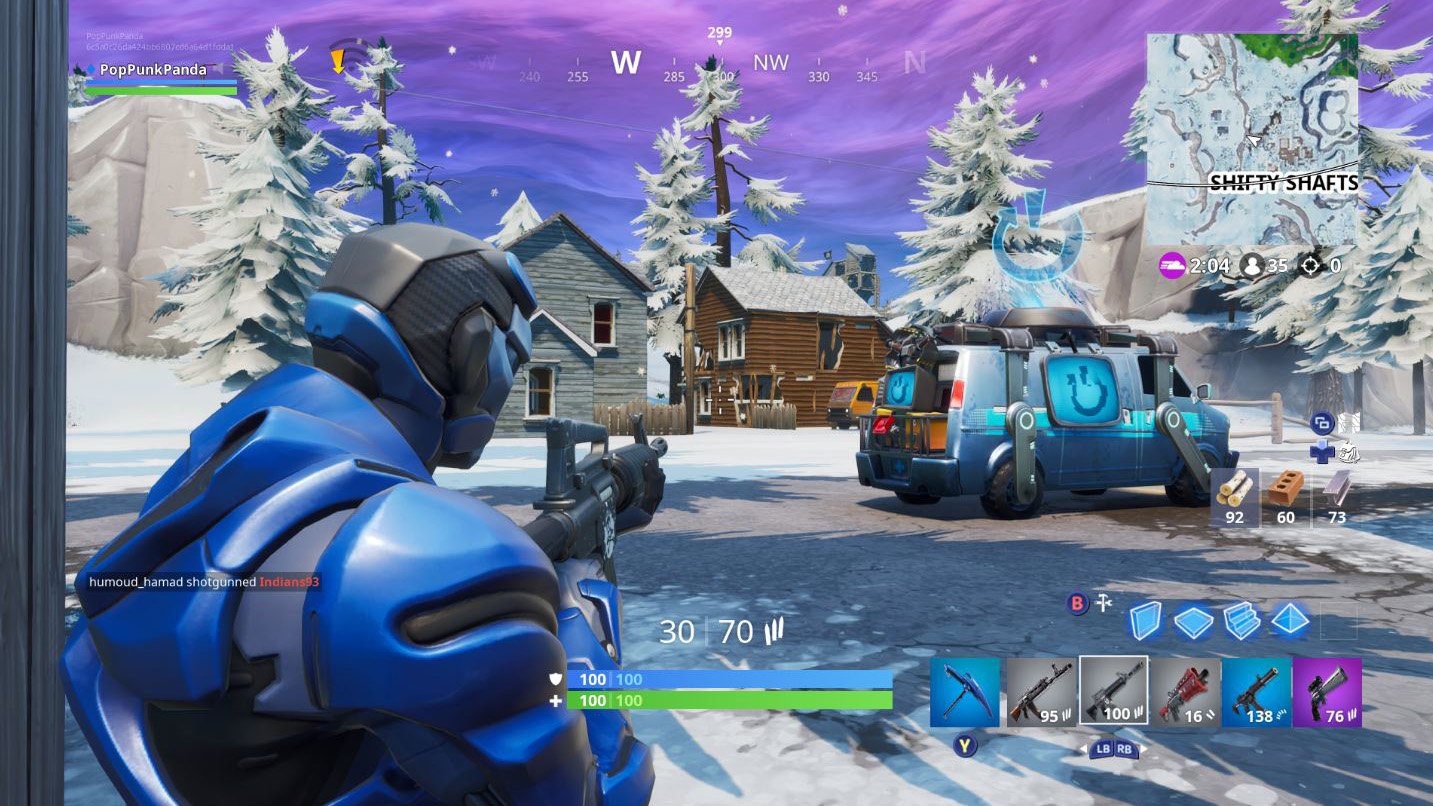
Of course, with this being a Battle Royale, it's unlikely you'll find much time to look at the scenery. Thankfully, Fortnite's combat still feels surprisingly fresh almost two years in, and that's primarily down to two things.
The first is the game's unique building mechanic, a holdover from its Save The World mode. By harvesting materials like brick or wood with your trusty pickaxe, players are able to build rudimentary structures with an intuitive grid-based building system. If you're out in the open, you might aim to create a wall to take cover behind, while traversing sheer cliff faces is much easier when you can construct a ramp, or a series of steps when descending.
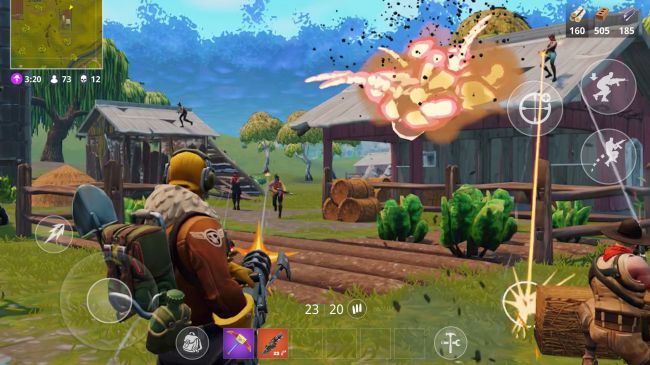
Building has long been a big part of Fortnite's difficulty curve, and it isn't uncommon to see the last ten combatants duke it out around a snaking series of ramps reaching into the heavens. The need to manage both building and shooting in increasingly confined spaces means Fortnite has a high skill ceiling, although it is entirely possible to brute force your way to a Victory Royale (something we're certainly guilty of). Epic's addition of a Creative Mode even allows for players to put together their own maps and custom game modes, adding even more to the longevity of Fortnite.
A second key component of Fortnite's satisfying combat loop is in the shooting mechanics themselves. While it may seem strange to compare a third-person, cartoony battle royale to the developer's earlier work on Unreal Tournament, Fortnite's mobile, often strafe-heavy and "loose" shooting feels like it carries on that series' DNA.
Weapons, for the most part, conform to standard archetypes of shotguns, sniper rifles and the like, but with Epic's commitment to shaking the game up at regular intervals we've seen weapons such as a Boogie Bomb, that causes enemies to dance, as well as remote-controlled missiles. Fortnite feels at its best when it revels in its own ludicrousness.
Price of a royale
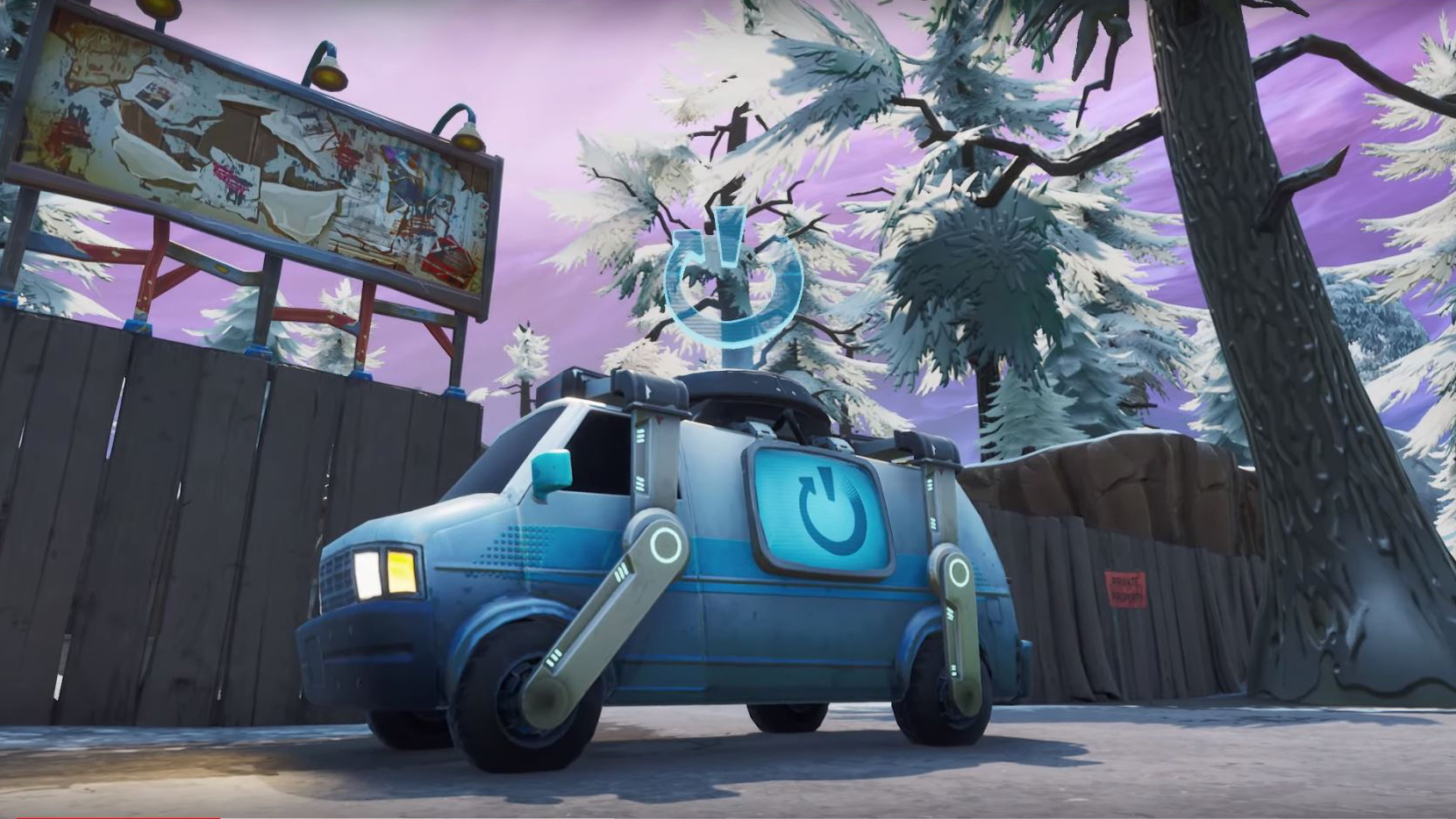
Reviewing a free-to-play title is a strange concept, because in Fortnite's case it can be easy to spend dozens of hours within its world without paying a single penny. Part of the game's appeal is it multi-platform ubiquity and the fact that it costs nothing.
While there are many that would question the longevity of a title supported entirely by micro-transactions, Fortnite's paid items are purely cosmetic and often just as zany as one would expect from a title sporting such a colorful aesthetic. Character skins, dance moves, and new pickaxe designs are available, but Fortnite's greatest financial value can be found in its Battle Pass.
Costing $9.99, the Fortnite Battle Pass allows for a steady stream of cosmetics that can be earned by simply playing the game and completing weekly challenges. These challenges are often a time for the community to come together and solve puzzles. Finishing one Battle Pass actually earns enough currency to buy the next one, too, and players that don't buy in will find their own stream of challenges.
Walls have fallen
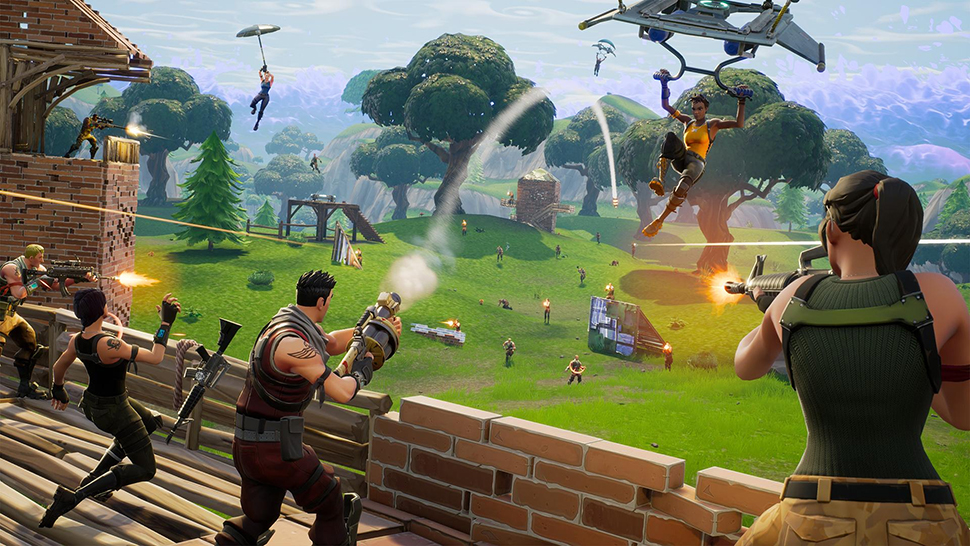
It's now easier than ever to pick up your fix of Fortnite on the go. With Sony finally acquiescing and allowing cross-play between PlayStation 4 and the previously walled-off versions of the game on other platforms, it's now entirely possible to play with your friends across multiple consoles.
Perhaps just as important for many is the addition of cross-progression. If you purchase the Battle Pass on your Xbox One, for example, the same challenges will be available to complete on your Nintendo Switch - perfect for checking off your rewards while on the go. It isn't just the Battle Pass either - all of your purchases and currency can be found on all of your devices.
Verdict
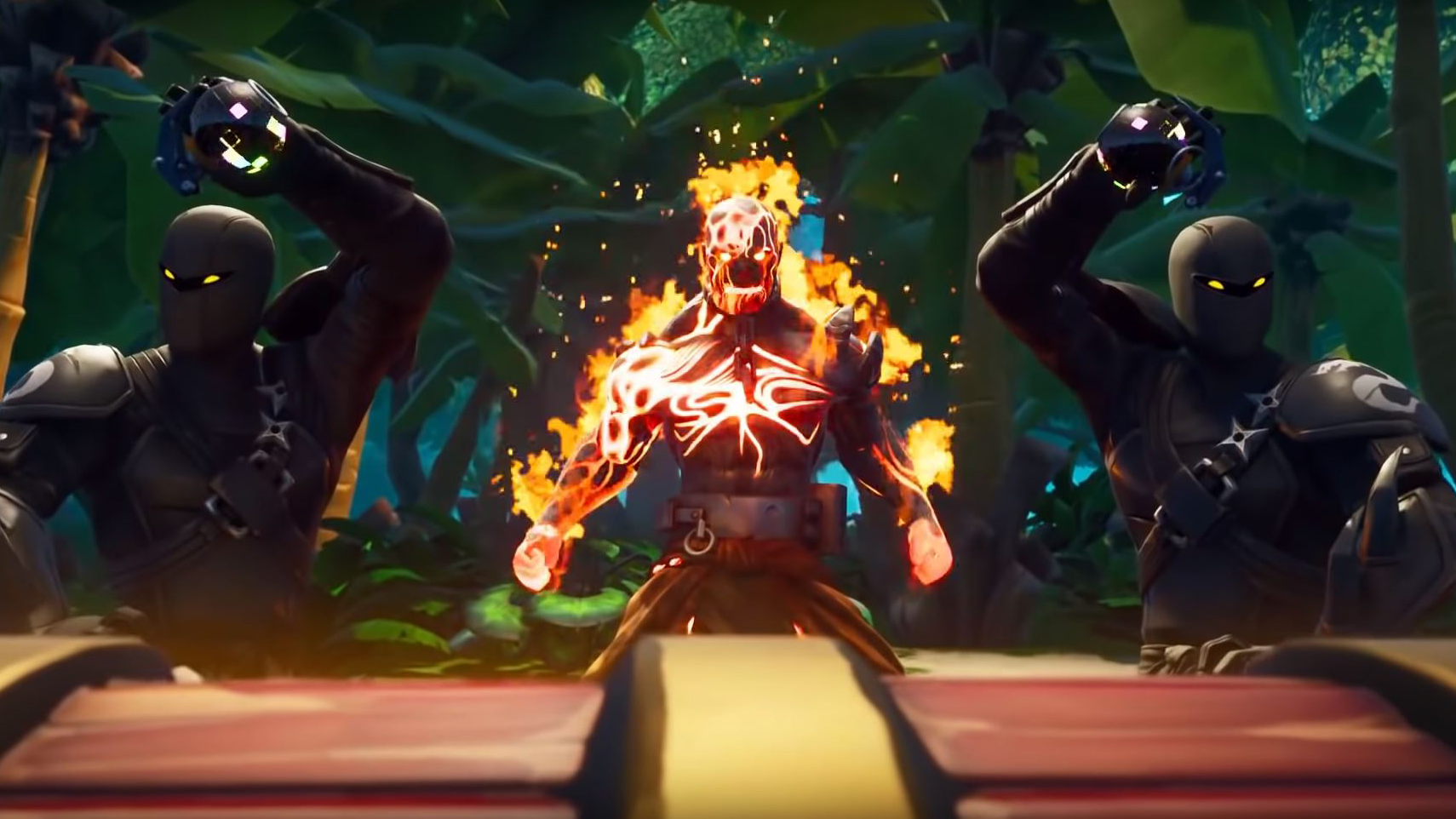
There is a reason that Fornite is arguably the biggest game of the last decade. Its influence can be felt throughout pop culture as a whole because it walks the line of accessibility and that competitive spirit that many enjoy so much.
Beneath all of the dances, the skins, and the Battle Pass, Fortnite Battle Royale is an excellently designed, ever-shifting platform of a game that respects a player's time whether they choose to spend money or not. There's enough of a learning curve to keep us coming back time and time again, while also being a fun place to play a quick game with a friend. It truly is a modern marvel.
(Image credits: Epic Games)
- Here’s what happened when we hired a Battle Royale teacher
- Check out our picks of the best PS4 games

Lloyd Coombes is a freelance tech and fitness writer for TechRadar. He's an expert in all things Apple as well as Computer and Gaming tech, with previous works published on TopTenReviews, Space.com, and Live Science. You'll find him regularly testing the latest MacBook or iPhone, but he spends most of his time writing about video games at Dexerto.
